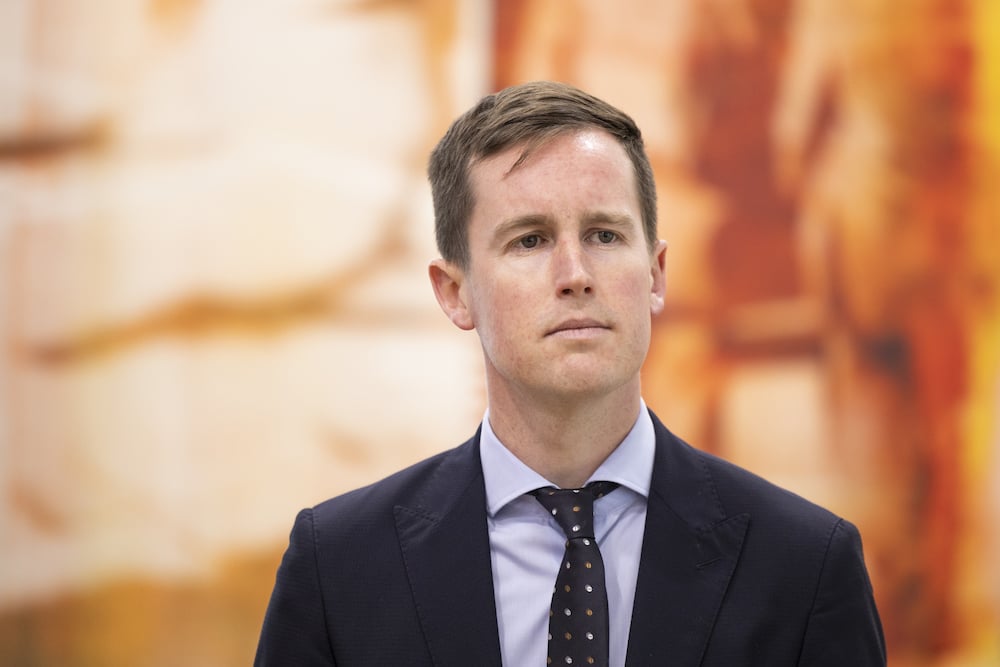The ACT Government will discontinue the multi-million-dollar Human Resources Information Management Systems (HRIMS) project started in 2017, and instead upgrade its existing human resources and payroll systems.
The government states that the implementation of the HRIMS Program faced various challenges, including delays caused by the program’s size and complexity, as well as the redirection of resources and priorities due to the COVID-19 pandemic. A recent review of the program revealed issues with project governance at all levels.
Special Minister of State Chris Steel said the government will enhance governance frameworks for all projects involving technology components, and that the review’s findings will shape reforms to Information and Communications Technology (ICT) projects.
The Canberra Liberals, however, have criticised Mr Steel’s handling of the project, calling it one of the worst mismanagements of public funds in ACT history. They argue that $76 million of taxpayer money was wasted on a new human resources management system that was ultimately abandoned, and have called for effective value-for-money procurement to drive the ACT budget back to surplus.
Leeper report: HRIMS program suffered from deficient governance and incomplete business case
In 2017, the government established the HRIMS Program to implement a contemporary WhoG Human Resource and Payroll solution aimed at moving the Territory to more contemporary Human Resource and Payroll processes, a government spokesperson explained.
Several issues were associated with the implementation of the Program, including delays due to the size and complexity of the program, in conjunction with impacts to resourcing and priorities due to the COVID-19 pandemic, the spokesperson said.
“Responding to the COVID-19 outbreak became a government priority, and resources were realigned to focus on helping the Territory recover from the impact of the pandemic,” the spokesperson said.
“The Program was paused, and a technical and non-technical review of the Program was undertaken to assess the progress to date and determine a way forward for the Program.”
The latest review, by Geoff Leeper at Yarrabee Consulting, identified deficient governance, an incomplete business case, and unclear roles and responsibilities in the HRIMS project. Lack of a clear business owner and senior responsible official, absence of a single source of truth, and unclear task delegation further affected implementation.
The report found: “Overall governance of the activity from options consideration to implementation was deficient; the business owner responsible for the service outcome was not engaged, assumptions were made but not challenged about the ongoing suitability of the Chris21 product; roles and responsibilities (owner, user, supplier) were unclear and there was no single person accountable for delivery…
“The Business Case that went forward for Budget consideration was not complete in that a detailed understanding of the current state and design for a future state were still in progress. Some degree of process standardisation across Directorates was foreseen but not completed before the decision to proceed with a new system; and hence the cost estimates and implementation timetable were overly optimistic.
“Implementation of the HRIMS project was adversely affected by the lack of a clear Business Owner and an identified Senior Responsible Official, the latter accountable for the implementation; the Systems Integrator did not use ACT Government reporting systems and therefore no single source of truth existed about implementation status and progress; there was not a ‘single team’ view of the tasks to be done and roles and responsibilities were unclear.”
ACT Government will pursue less risky, lower cost approach
Based on the report’s recommendations, the government will strengthen governance frameworks around all projects with technology components, the spokesperson said.
“Whilst COVID-19 affected the implementation of HRIMS, there are clearly significant project governance issues that have been identified that will provide leanings for other ICT projects in the Territory,” Mr Steel said.
“It is disappointing that the reviews of this long running project have found that upgrades to the existing HR and payroll systems were not properly scoped at the beginning, which is the approach we are now pursuing at less risk and cost to the Territory.
“The findings of the Leeper review are shaping reforms to ICT project governance across ACT Government, including consideration of a greater role of the Digital and Data Technology Solutions (DDTS) team, which has expertise to manage these types of complex ICT projects.”
Canberra Liberals: “One of the worst mismanagements of public funds in ACT history”
But the Canberra Liberals believe Mr Steel should resign.
Peter Cain MLA, Shadow Assistant Treasurer, said the ACT Labor-Greens government had wasted $76 million of ACT taxpayers’ money on a new human resources management system that was then abandoned.
“It has become exceedingly clear that Canberrans simply cannot trust the Special Minister of State to deliver on projects after yet another example of waste and mismanagement under his leadership,” Mr Cain said.
“The government brought in 23 contractors to work on this project at a cost of $44,539,773 since 2016 to deliver absolutely nothing.
“In conjunction with the $31,200,372 spent in-house by the ACT Public Service on staffing, labour hire, hospitality, and advertising costs, this project signifies one of the worst mismanagements of public funds in ACT history.
“The Special Minister of State claimed in Budget Estimates last year that this program would generate long-term savings. There is clearly much more that needs to be explained, and the Special Minister of State needs to be upfront with Canberrans for once.
“The path back to surplus for the ACT budget will be driven by effective value-for-money procurement, not wasting tens of millions of public funds on abandoned projects. “In the past, Ministers, even Chief Ministers, have resigned for less. The Special Minister of State needs to take a good long hard look at himself over such wastage.”



